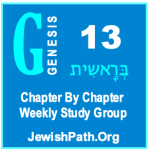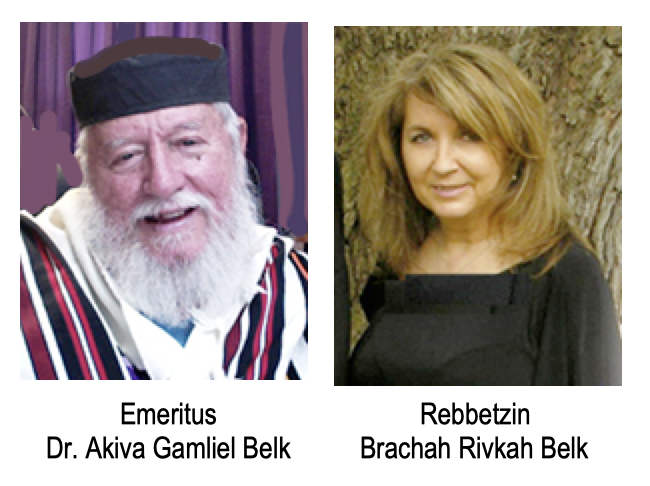Gen. 13 – Painful Separation
בייה
Genesis 13 Painful Separation
Study Partners, Abraham is known for his chesed/ lovingkindness and generosity. He was a Spiritual man, a good father, husband, master, relative, leader, shepherd, and soldier. (Psalms 133.1) highlights how Abraham felt about brotherly love. ‘Behold, how good and how pleasant it is for brothers to dwell together in unity! It is like the precious ointment upon the head that runs down upon the beard, Aaron’s beard, that runs down to the hem of his garments. Like the dew of Hermon descending upon the mountains of Zion; for there the Lord has Commanded the blessing, life forevermore.’
In my book Gematria And Mysticism in Genesis III, I share the following story from (Genesis 22) about Abraham’s love for both of his sons in his 10th trial.
And it happened after these events, God Tested Abraham, and He Said to him ‘Abraham!’
Abraham responded, ‘Here I am.’
God Said to him, ‘Take your son.’
Abraham replied, ‘I have two sons,’
God Said, ‘Take your only son,’
Abraham said, ‘Yishmael is an only son to Hagar and Isaac is an only son to Sarah’
God said, ‘Take the one whom you love.’
Abraham said, ‘I love Yishmael, and I love Yitzchok.’
God Said, ‘Take Yitzchok and go to the land of Moriah sacrifice him as a burnt offering on one of the mountains which I will designate to you.’ Abraham immediately proceeded to do as God Said. Throughout his life, Abraham meticulously followed God’s Instructions. (Amos 3.3) expresses how Abraham guided his household. ‘Can two walk together, unless they are in agreement?’ The Lord God Says, in (Genesis 18.1) ‘For I know him, that he will command his children and his household after him, and they shall keep the way of the Lord, to do justice and judgment; that the Lord may bring upon Abraham that which he has spoken of him.’
In (Genesis 12) we discussed why the local people in [Kiriath Arba – Hebron] honored Abraham. He brought lasting peace [forty years] to the region. Note the remark honoring Abraham in (Genesis 23.6) ‘My lord [referring to Abraham]; you are a mighty prince among us.’
Abraham interceded for the righteous people left living in Sedom. (Genesis 19.20).
Abraham makes a peace covenant with Abimelech regarding ownership of a well dug by Abraham’s servants ( Genesis 21.32).
The Proceeding information gives us a sense of how Abraham lived, so we realize the force behind his words to Lot. (Genesis 13) says, ‘Abraham said to Lot, ‘Separate yourself, I beg you, from me; if you take the left hand, then I will go to the right; or if you depart to the right hand, then I will go to the left.’ That is sad! Abraham essentially said I will go in the opposite direction away from you. How could that happen? Abraham was righteous. Lot was also righteous – BUT NOT – on the same high level as Abraham. Lot’s character deficiencies hindered and tormented Abraham’s Holy Soul. What was going on here?
Charan, Abraham’s brother, followed Abraham into the fiery furnaces of the Chaldeans. (Genesis 15) informs us that The Lord God Delivered Abraham from the fiery furnace of the Chaldeans. Nevertheless, his brother, Charan, the father of Lot, was burned alive. He perished! Why?
The Story of Charan’s Death
At that time, Nimrod ruled a kingdom. (Genesis 11.1) says, ‘And the whole earth was of one language, and one speech.’ (Genesis 11.5-6) says, ‘And the Lord Came down to see the city and the tower, which the sons of men built.
Moreover, the Lord Said, Behold, the people are one, and they have all one language; and this they begin to do; and now nothing will be restrained from them, which they have schemed to do.’ They were united to do evil! They were in agreement going the wrong direction. The events in this story occurred around the time The Lord God Split The Hebrew language into 70 languages. They were united with one language and divided by 70 languages.
Much is written about Terah, Abraham’s father. The Midrash informs us that Terah manufactured idols. He stopped manufacturing idols before he died. He eventually returned to the Lord God. The Midrash states, Terah went leaving Abraham to sell idols from the family store in his place. A woman came in with a plateful of flour and requested him to offer it to the idols. So Abraham took a stick, broke them, and put the stick in the hand of the largest idol. When his father returned, he demanded, ‘What have you done to them?’
Abraham replied, I cannot conceal it from you. A woman came in with a plateful of fine meal and requested me to offer it to them. One exclaimed, ‘I must eat first,’ while another demanded, “I must eat first.” There upon the largest arose, took the stick, and broke them.’
Terah cried out, Why do you make sport of me? Do they have any knowledge?
Abraham responded, ‘Your ears should listen to what your mouth is saying.’ Terah seized Abraham and took him to Nimrod.
Nimrod said to Abraham, ‘Let us worship the fire!’
Abraham countered, ‘Let us instead worship water, which extinguishes the fire.’
Nimrod agreed. ‘Let us worship water!’
Avram objected. ‘Let us instead worship the clouds which bear the water.’
Fine, said Nimrod. ‘Let us worship the clouds!’
Abraham objected again, ‘Let us instead worship the winds which disperse the clouds.’
Nimrod agreed, ‘Let us worship the wind!’
Avraham said, ‘Let us instead worship human beings who withstand the wind.’
Nimrod said, ‘You are just bandying words. We will worship naught but the fire. Behold, I will cast you into the fire and let your God whom you adore come and save you from it.’
Charan was standing there undecided. He thought, ‘If Abraham is victorious; I will say that I am of Abraham’s belief. On the other hand, if Nimrod is victorious, I will say that I believe as Nimrod does. Abraham descended into the fiery furnace. The Lord Saved him. Nimrod asked Charan, Of whose belief are you?
Charan replied, Of Abram’s! There upon Nimrod’s soldiers seized Charan cast him into the fire; his inwards were scorched, and he died there in his father’s presence. Hence it is written, AND CHARAN DIED IN THE PRESENCE OF (‘AL PENE) HIS FATHER TERAH. See Midrash Rabba Bereishit. Lot inherited that indecisiveness from Charan, his father. Charan did not experience God as Abraham did. Charan was influenced by his father, Terah, Lot’s grandfather. Terah was an idolater. Nahor, Charan, and Abraham were raised in an environment of idols and idolatry. Unfortunately, Lot had ethical and moral deficiencies in marriage, including his children, grandchildren, and servants’ relationships. How do we know this?
Harry Chapin is famous for co-writing and recording Cats in the Cradle. The song is about a man who was too busy to invest time in his son’s life. The lyrics tell a story of a boy growing up to become just like his father eventually.
Judaism is a way of living. We are NOT a religious belief. Our lives are interwoven with individuals, our family, and our community. Still, we are not perfect. Only God is perfect!! Individuals, families, congregations, and communities make mistakes. We need to grow some more. Our lovingkindness does not reach far enough in the right directions.
Parents and grandparents constantly involve themselves with children and the community in Spiritually fun events. Look for an exceptional Congregation that cares about loving people of all races, genders, political backgrounds, et cetra. It is good to have spiritual leaders who follow and teach lovingkindness principles. Our discussion is about doing what the Lord Commands.
Lots Servants
(Genesis 13) Shares Lot’s failings with his servant relationships. The Torah says,there was strife between the herdsmen of Abram’s cattle and the herdsmen of Lot’s cattle.’
Lots Wife
Lot’s wife was against him. Lot prepared unleavened bread, i.e., Matzah. That is bread without leaven, which is used for Pesach/Passover. The Torah makes it very clear that Lot prepared The Passover Matzah. Lot’s wife did not participate in The Passover Meal. A fierce quarrel broke out over the salt, for he [Lot] said to her [his wife],’ Give these guests a little salt,’ to which she replied, ‘Do you want to introduce that evil practice here also?’ Br R 50.4
When Lot did not have salt for The Passover meal, she requested salt from house to house. She gossiped about Lot. She announced, ‘We have Guests, ‘ and Lot needs salt for The Feast he is preparing. Br. R 51.5
One of our Sages taught, ‘Lot’s wife turned into salt because she was stingy towards the needy. Lot himself was a generous person, always inviting guests. His wife resented guests and discouraged them. One trick of hers was not to provide salt, a small thing that makes a big difference to guests. Therefore, she was punished measure for measure.
Lots Children
When Lot invited his children to The Passover meal, they laughed and mocked him (Genesis 19). The Word פָּרֶד Paw Read means to separate, to disintegrate, to loosen, to decompose, to break down. Lot’s weakness is revealed. In (Genesis 13), Lot breaks away from Abraham. Lot divides himself from Abraham. He was attracted to the plains of Sodom. Lot led his family and servants to a perverse wicked city that was sexually perverted.
(Genesis 13.11) says, ‘Then Lot chose for himself the valley of the Jordan, and Lot journeyed east, and they separated / divided themselves, one from the other.’
Later, as noted previously, The Lord God of Israel Testified in favor of Abraham. (Genesis 18.19) says, ‘For I know him, that he will command his children and his household after him, and they shall keep the way of The Lord, to do justice and judgment; that The Lord may bring upon Abraham that which He has spoken of him. ‘
Study Partners, Lot did not command his children and his household after him. The First Letter of The Word פָּרֶד Paw Rehd is The Letter פ Pey. The פPey represents the mouth. The פ Pey represents what we say. Here the פPey represented what Lot did not say. Lot followed the Observances he learned from Abraham to a degree. Perhaps we do that as well. At that time, Abraham taught the nations The Seven Laws. Later, Abraham made his first journey to The Land of Canaan. Genesis 12.1 – Heinrich W. Guggenheimer, Seder Olam (A Jason Aronson Book, Lanham, Maryland, Rowman & Littlefield Publishers, Inc. 2005) p 3
Dear Ones, we want to avoid following Lot’s path. We want to teach our children and those we love to interact with Spiritual people. We want to help those we love to guard their entrances. Corruption is very accessible to each of us. We must be diligent to guard those we love. That requires us to take active roles in the lives of those we love.
May we stay within the Torah’s Guidelines of righteous living and repentance. May we help others and bring peace and healing to our world. May this coming Sabbath and every Sabbath be a blessed Day.
Good Sabbath!
Dr. Akiva Gamliel Belk
JewishPath.Org

